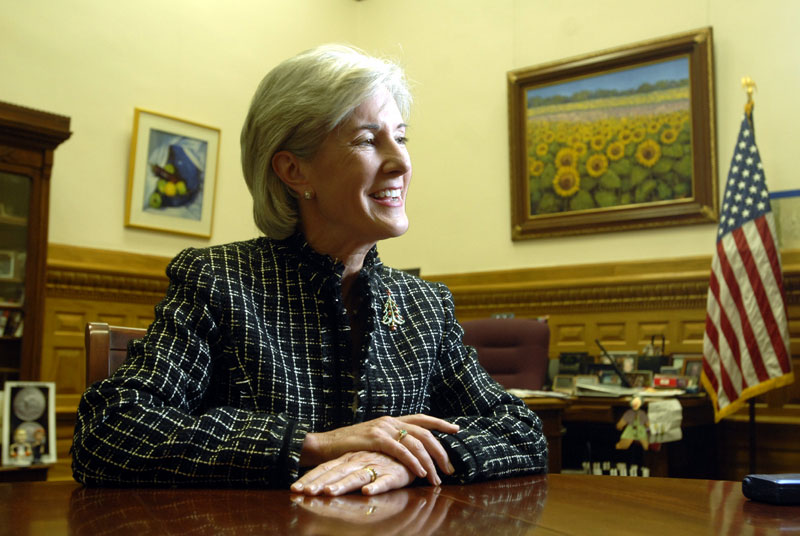Sebelius: Coal plants likely
Governor says it's important to keep business in Kansas, despite controversy
Topeka ? Gov. Kathleen Sebelius on Thursday said Sunflower Electric Power Corp. likely will be able to build coal-fired plants.
“It’s a question of does it get built in Kansas or Oklahoma,” Sebelius said in an interview with the Lawrence Journal-World.
Sunflower Electric has proposed three 700-megawatt plants next to its current 360-megawatt facility in the west Kansas town of Holcomb.
Permits for the project are under review by the Kansas Department of Health and Environment.
Environmentalists say the plants will be a major source of gases that cause destructive climate change. Supporters of the project say it will burn coal more cleanly than older plants and will boost the west Kansas economy.
A number of environmental groups have asked Sebelius to reject the Sunflower proposal and declare a moratorium on the construction of coal-fired plants in Kansas.
When asked about what she would do about the proposal, Sebelius said there is a need on the federal level to regulate plant emissions.
“It’s very difficult within the borders of Kansas to control greenhouse gases and global warming,” Sebelius said.
“I am eager to be a partner in that effort across the country, but what we know is that the Holcomb plant is likely to be built one way or the other. It’s a question of does it get built in Kansas or Oklahoma,” she said.

Kansas Gov. Kathleen Sebelius has voiced some support for the building of clean coal plants in western Kansas under certain conditions. Sebelius said on Thursday that the plants could help the state's rural economy.
Her comments were criticized by environmentalists who have been fighting Sunflower’s proposal.
“To say that state government can’t do anything is an excuse to do nothing,” said Charles Benjamin, an attorney representing the Kansas chapter of the Sierra Club.
He noted that California and a group of northeastern states have adopted rules to reduce carbon dioxide emissions. Eight states have come out in opposition to the Sunflower proposal.
“The excuse that we have to wait until the federal government does something, is just that, an excuse,” Benjamin said.
A spokesman for Sunflower could not be reached for comment. Benjamin said he had heard of no proposal from Sunflower to try to build the plants elsewhere if rejected in Kansas, although he noted Sunflower’s partner, Denver-based Tri-State Generation and Transmission, which will own two of the proposed Holcomb plants, also plans to build a coal-fired unit in Colorado.
Sebelius said the Sunflower project has prompted state leaders to focus on energy issues with an eye toward promoting renewable sources.
“I’m hopeful that what we will do at the end of the day is really use this as an opportunity to accelerate some of the renewable energy of which we have an incredible abundance in this state,” she said.
But Benjamin said his concern was that the Sunflower plants will be constructed and its emissions will be exempted from possible tighter controls in the future.
“These coal plants will be emitting for the next 50 to 75 years. That will be the entire lifetime of many of the children and grandchildren alive today. These have important consequences,” he said.
Coal-burning power plants
- 6News Video: Opposed coal plant likely for Kansas (12-21-06)
- Sebelius still mulling ban on coal-fired plants (12-20-06)
- Feds weigh in on coal plant (12-18-06)
- Read letter from the United States Department of the Interior concerning the proposed coal power plants in Western Kansas (.pdf)
- Power plant resistance grows (12-13-06)
- 6News video: Colorado group joins coal plant dispute
- Speaker to Lawrence: Don’t fret (12-07-06)






